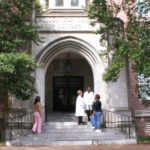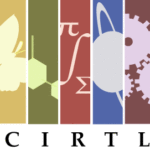‘Course Design’
Consultations for University Courses and TIPs Proposals
Nov. 1, 2016—by Derek Bruff, CFT Director The Office of the Provost has issued a call for proposals for Trans-Institutional Programs and University Courses for 2017-2018. TIPs pre-proposals are due November 28th, and University Course proposals are due December 12th. If you’re a faculty member thinking about a submission to either program, feel free to reach out...
New CFT Teaching Guide – Leveraging Study Abroad: Collecting and Teaching with Authentic Resources
Aug. 24, 2016—By Stacey M. Johnson and Vivian Finch, CFT Assistant Directors In language classrooms, instructors often bring in authentic language and culture resources for students to examine. These resources help students to gain a perspective on how people use language in culturally situated ways. For many students, contact with authentic resources is one of the most...
Coupling curriculum revision and scholarship in the School of Nursing
May. 18, 2016—We need to have coordinated lectures throughout our curriculum so that students get key concepts early and then build on that solid foundation. We need to avoid undesired redundancy. We need to keep students engaged throughout the three 8-hour days they spend with us in block. We need to quit powerpointing students to death. In...
Dept. of Chemistry’s Colloquium Series Features Brian Coppola on March 28th
Mar. 21, 2016—Real Work is Better than Homework Dr. Brian Coppola, American Chemical Society Fellow and 2009 CASE/Carnegie US Professor of the Year will give a Chemistry Department Colloquium Monday, March 28, 4:15-5:30 in Stevenson Center 5211. Prof. Coppola is well known for his work in Instructional development; the abstract for his talk and two relevant recent...
“Students as Producers” Course Design Institute, May 9-11
Mar. 8, 2016—The CFT invites faculty members to apply to its new Course Design Institute on the theme of “Students as Producers.” During the three-day institute (May 9-11, 2016), participants will design (or redesign) courses that engage students not only as consumers of information, but producers of knowledge. Research by first- and second-year undergraduates conducted within a...
Local CIRTL Workshop on Evidence-Based Teaching
Dec. 15, 2015— VU-CIRTL is conducting an Evidence-based Teaching Workshop January 7th and 8th. The workshop is designed for future faculty with no experience with teaching as research however all graduate students, post docs, faculty, and staff are welcome. Workshop topics include how people learn, challenge-based learning, course design, assessment, classroom management, classroom technology, and scholarly resources....
Course Design Consultations for University Course Proposals
Dec. 4, 2015—Last month Chancellor Zeppos launched the University Courses initiative, designed to promote cross-college teaching at Vanderbilt. These courses, taught by faculty outside of their home department or school or co-taught by faculty from different schools or colleges, will provide new opportunities for students at Vanderbilt to consider big questions and hard problems from multiple perspectives....
What makes group work work?
Sep. 2, 2015—by Cynthia Brame, CFT Assistant Director We’ve all been there: victims of unproductive and frustrating group work. Perhaps an instructor poses a question, tells us to turn to our neighbor and discuss it, and we all sit silently…because the answer’s obvious and there’s nothing to discuss. Or perhaps we have an end-of-semester project to develop,...
Make the Most of Your Course Preparation Time This Summer
Jun. 8, 2015—Summer time is here, and many faculty members have a break from their usual schedules, a chance to slow down a bit and start planning their fall courses. If you have a breather, you may find this an opportune time to review and refresh your teaching plans and practices. The Center for Teaching is open...
From the Stacks…
Jun. 5, 2015— Teaching as a Design Science: Building Pedagogical Patterns for Learning and Technology by Diana Laurillard This book focuses on the learning community model that is the most flexible to implement in terms of scheduling, teacher collaboration, and design: the linked course. This volume covers both “linked courses” in which faculty may work to coordinate...










